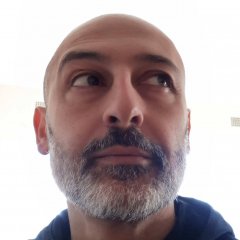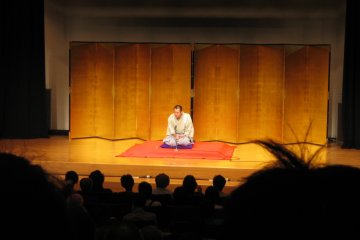Japan's theatrical arts of noh, kyogen, kabuki & bunraku may claim the lion's share of the limelight but they do share the cultural stage with some younger siblings. Still entertaining audiences, yose (pronounced yo-se) is a collective term for a number of spoken Japanese variety acts that have been literally talking the talk since the 18th century.
Reciting famous tales in Japan, a common form of public entertainment during the Edo period, was known as kodan and was often directed towards the upper classes and heavily laden with military, historical or religious undertones. This form of public lecturing eventually became a popular avenue for witty comedy and thought provoking sentiment with the advent of such spoken arts such as the sentimental naniwa-banashi, ghost stories known as kaidan, and the human drama tales of ninjo-banashi.
Probably the most famous and still popular form of yose is rakugo. Literally meaning 'dropping word' rakugo sees a lone storyteller seated on a slightly raised platform, reciting what is usually a solo comedy act. Using only a paper fan and a small piece of cloth as props, the storyteller plays multiple characters and relies on a clever use of wit to create a punchline known as a 'drop' (ochi) to help entertain audiences. Aside from local performances, rakugo features regularly on television with storytellers competing with each on national television.
These yose performances were strewed all across the Edo capital with theatres available in almost every district. Naturally, with the advent of other public entertainment options - like cinema - the number of yose-specific theatres dwindled. By the beginning of the 20th century, less than 70 were said to remain and many more have dropped by the wayside since then. These days, along with Shinjuku, most theatres are to be found in Tokyo's shitamachi downtown districts like Asakusa and Ueno.







